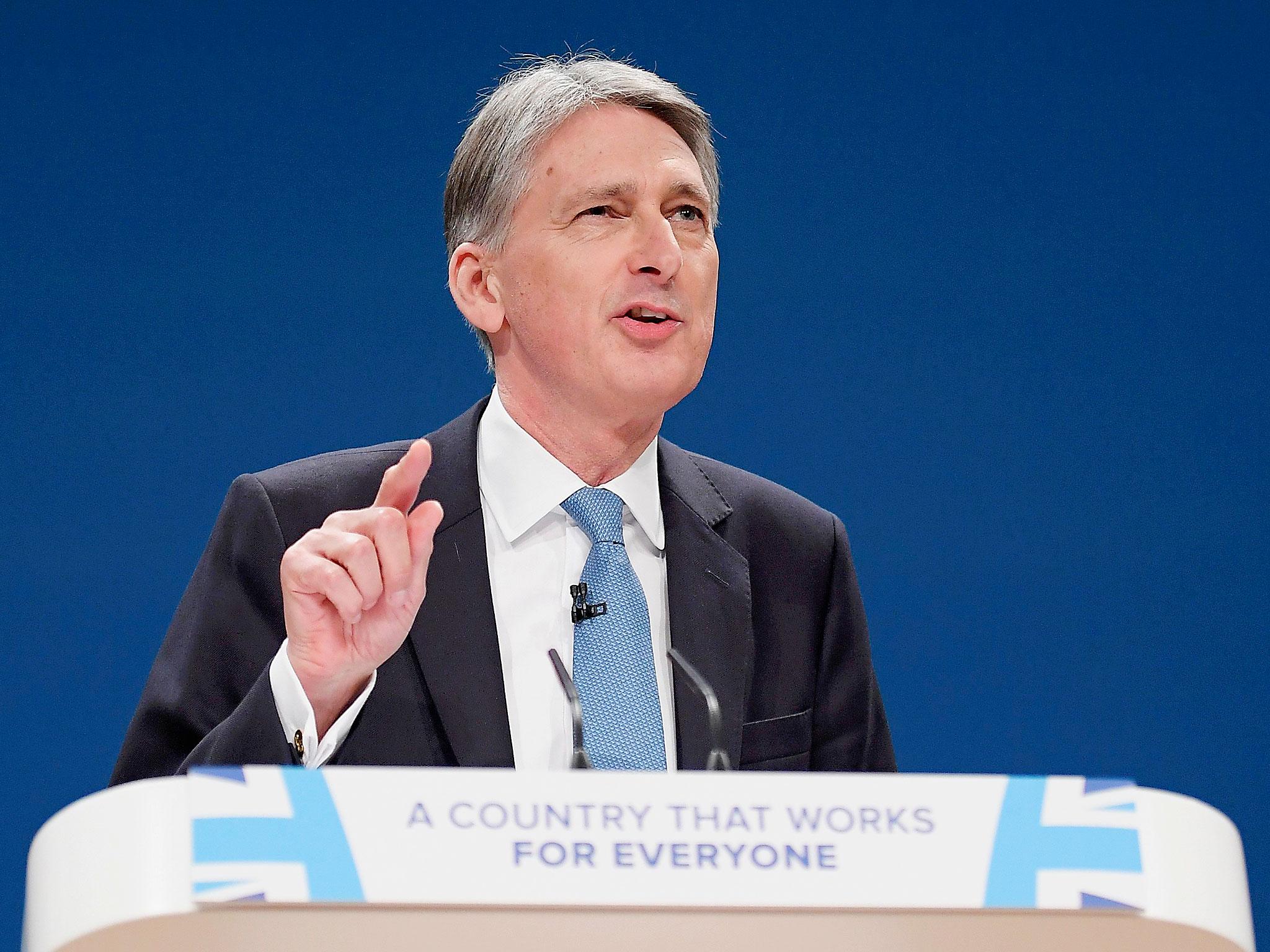How far Philip Hammond will be able to create Theresa May’s fairer Britain remains to be seen
Ms May has said that she wants an economy that works for all, and has indicated that she wants a more equal society, and, in particular, that she wants to see corporate excesses on tax avoidance ended

It’s almost as though we’d had a change of government. From grammar schools to our membership of the European Union, policy by policy, personality by personality, much of what the Tories stood for under David Cameron is being dumped – and with hardly a murmur from the Conservative Party Conference. That’s what you call a quiet revolution.
Now we discover economic policy is to undergo a similar makeover. Philip Hammond may have served in the same Cabinet as the man he usually refers to as “my predecessor”, and was once George Osborne’s lieutenant in opposition as shadow Chief Secretary to the Treasury, a position he had to forsake when the politics of the coalition awarded it to the Liberal Democrats. However, the new Chancellor has wasted little time in distancing himself from Mr Osborne, not least by ditching the old regime of unworkable fiscal targets, a signature Cameron/Osborne wrote into law. Few will mourn their passing, and Mr Hammond is wise to reshape the public finances in radically changed times.
Rapidly emerging as the leading, though coded, proponent of a soft Brexit, Mr Hammond, a former businessman, knows better than most what he euphemistically calls the Brexit “roller-coaster” could do to confidence in the British economy. That’s not a phrase one can imagine Ms May uttering. The early fault lines of a Cabinet split on Brexit can, thus, already be discerned. Though with little independent parliamentary following of his own, Mr Hammond will represent in the Government a substantial slice of Conservative and, more importantly, business opinion. He should make the best of the leverage his office gives him in these debates.
The pity of it is that the Treasury, so long the driving powerhouse of Government, has been virtually marginalised by the Prime Minister and her three Brexiteers and their new ministries. While Liam Fox, David Davis and Boris Johnson jockey for influence and resources, HM Treasury finds itself in the unfamiliar and uncomfortable position of bystander. Some tensions between No 10 and 11 are inevitable.
In economic policy, targeting sooner or later obeys Goodhart’s law. Named after a distinguished former official of the Bank of England, Charles Goodhart, and posited during the high noon of monetarism in the 1980s, it suggested that every time some monetary target was selected by the Bank, the very act of publicly pursuing it would render it useless and unattainable. The various targets for deficit and debt reduction promulgated by Mr Osborne since 2010 are a little different to that, and the reasons for failing to hit them sometimes Mr Osborne’s own fault. Whatever the excuses, they were consistently missed and have long since passed into disrepute. Now they have fallen into disuse.
We will have to wait until his first Budget to see what Mr Hammond replaces them with, and exactly how he plans to improve the British economy’s historic problem with low productivity. The signs are that he will deliver on the ambitious infrastructure investment programme that everyone from shadow Chancellor John McDonnell to the Confederation of British Industry have been calling for (and, to be fair, which Mr Osborne was likely to implement too). Beyond that, things will be much more controversial. Ms May has said that she wants an economy that works for all, and has indicated that she wants a more equal society and, in particular, that she wants to see corporate excesses on tax avoidance ended. How far Mr Hammond will feel able to make that vision a reality remains to be seen. Practical and ideological obstacles could easily lead to more tensions with No 10, though the neighbours are yet to fall out too publicly.
So, while austerity is here to stay, Mr Hammond is going to leave balancing the books for another, unspecified, day. He has an economy to save from the threat of hard Brexit in the meantime. Trouble is, will the hard-line Brexiteers in the government let him?
Join our commenting forum
Join thought-provoking conversations, follow other Independent readers and see their replies
Comments